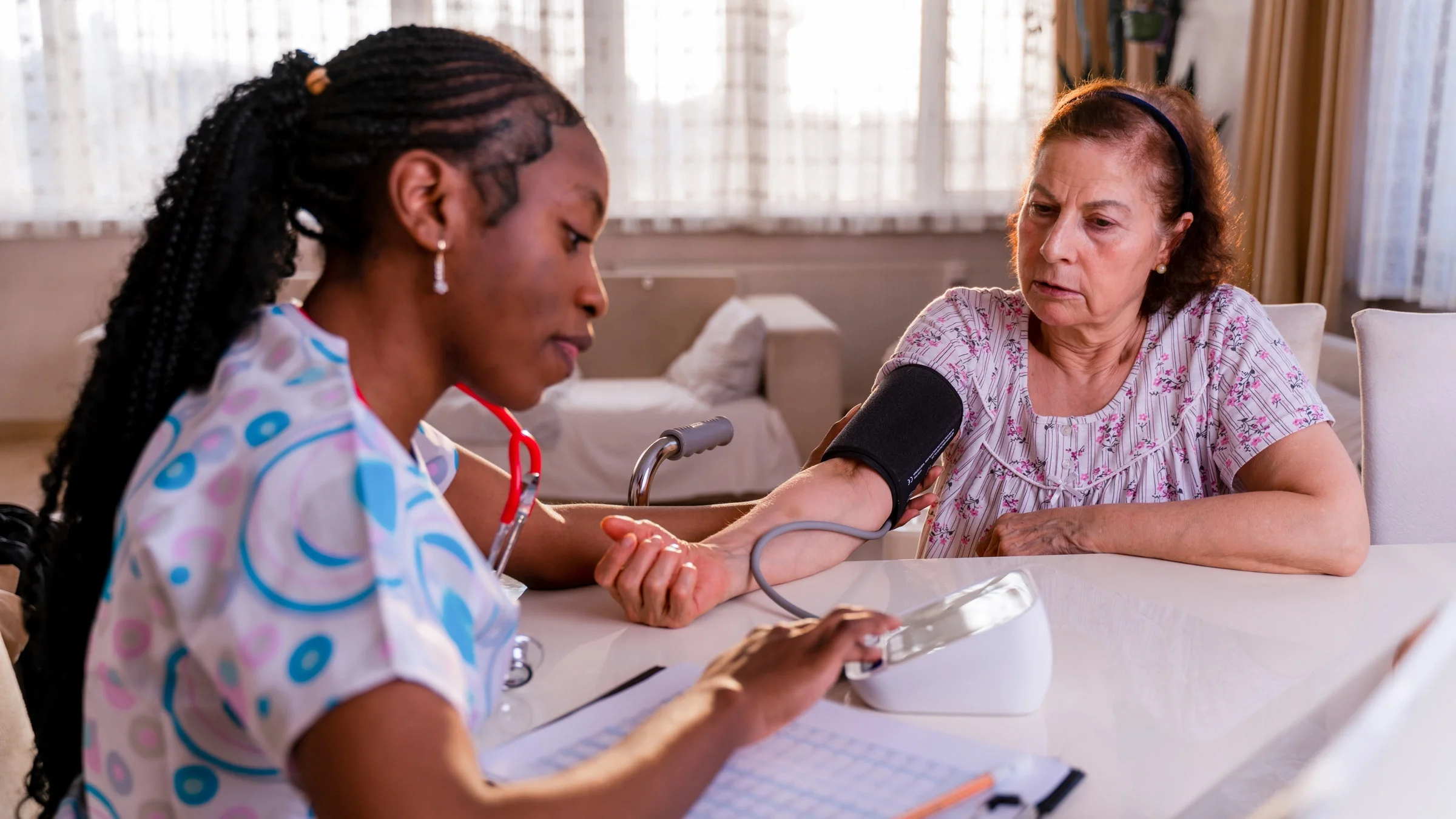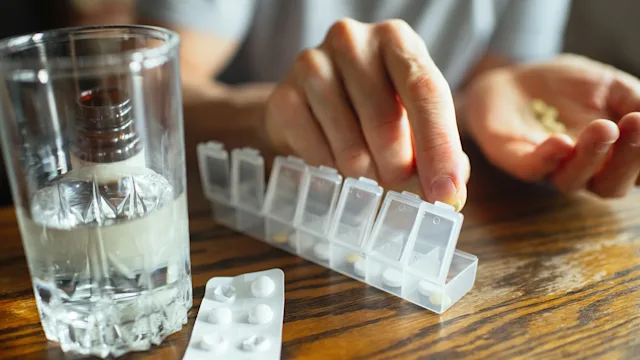Key takeaways:
Over 100 million adults have high blood pressure in the U.S. Sometimes, factors like medication, beverages, and anxiety about clinic visits can put you at risk for high blood pressure.
It can be hard to know if something is causing your blood pressure to be high. That’s because high blood pressure doesn’t typically have any symptoms.
Home monitoring of your blood pressure can help you pick up any changes in your blood pressure readings. Your provider can help you figure out if any new medications or habits are raising your blood pressure.
High blood pressure is a common condition affecting 100 million adults in the U.S. There are many factors that can put you at risk for high blood pressure, like age, a sedentary lifestyle, and family history. But there are some surprising things that can raise your blood pressure, too. Common items you may be using each day — like birth control and over-the-counter (OTC) medications — can also cause your blood pressure to rise.
Let’s take a closer look at some medications, beverages, and other surprising things that may be affecting your blood pressure.
1. Birth control
Hormones found in birth control can cause your blood pressure to rise. It’s not entirely understood why this happens to some people. For most, it’s not a huge increase. In others, though, their blood pressure can rise significantly. It’s believed that the hormones may trigger chemical pathways that impact the kidneys, blood vessels, and how much fluid you retain.
But not all birth control has an adverse effect on your blood pressure. It’s typically only the estrogen-containing birth control that can raise it. This includes birth control like:
If you have high blood pressure, you still have birth control options. Your provider may suggest a progestin-only birth control or hormone-free birth control for you instead. These forms of birth control don’t have estrogen, and they generally don’t affect your blood pressure.
Progestin-only birth control includes:
“Mini-pill” (like norethindrone, drospirenone)
Hormonal intrauterine device (IUD), like Mirena
Implant (like Nexplanon)
Hormone-free birth control options include:
2. Energy drinks
If you’re using energy drinks to get a boost in your stamina, you might also notice a bump in your blood pressure as well. That’s because energy drinks often contain large amounts of caffeine and other stimulants.
The caffeine content of energy drinks can vary. Some drinks can have 100 mg of caffeine or the equivalent of 1 cup of coffee. And this can raise your blood pressure by up to 15 points or more. Other popular energy drinks can have as much caffeine as 7 cups of coffee.
Energy drinks can also raise your blood pressure by activating the stress hormones in the body. A rise in adrenaline due to an energy drink can lead to increased blood pressure.
Fortunately, the increase in blood pressure is usually short-lived. And there don’t appear to be any long-term blood pressure effects from energy drinks.
3. Alcohol
Drinking alcohol — both binge use and long-term use — has been linked to high blood pressure. Alcohol binging is consuming large amounts of alcohol over the span of 2 hours. It can cause a temporary spike in blood pressure levels. Meanwhile, regular, heavy use of alcohol can cause a long-lasting rise in blood pressure.
Alcohol raises blood pressure by its direct effect on the kidneys, brain, and blood vessels. It can also indirectly raise your blood pressure. Alcohol-containing drinks are often high in sugar and calories. This can lead to weight gain, further increasing your risk of developing high blood pressure.
Limiting your alcohol intake can help to decrease your blood pressure over time. Experts recommend keeping your alcohol use to no more than 1 drink per day for women and 2 drinks for men.
4. Over-the-counter (OTC) medications and supplements
Some OTC medications can also cause your blood pressure to rise. While treating your symptoms of aches, congestion, or fever, keep in mind that your blood pressure might suffer from taking certain OTC medications.
Common OTC medications linked to high blood pressure include:
Decongestants (like pseudoephedrine, phenylephrine)
Effervescent tablets (like Alka-Seltzer)
Herbal supplements (like ginseng, St. John’s wort)
Cold and allergy OTC medications are often prepared as combination medications. This means these medications can have many different ingredients. That’s why it’s a good idea to read the labels to be sure they don’t contain any substances that may put you at risk of raising your blood pressure.
Your blood pressure should return to normal if you are using these OTC medications for short periods of time. For long-term use, you may notice greater or longer lasting effects on your blood pressure.
5. A visit to a medical provider
It’s pretty common to notice a bump in your blood pressure when you are visiting a medical provider. Sometimes, it’s due to the pain, illness, or other reasons you may be having your visit for in the first place. But other times, it may simply be due to the visit itself.
White coat hypertension (WCH) is the measurable effect that being in a medical clinic can have on your blood pressure. It’s estimated to affect almost 15% of people. That may be an underestimate, though. Some studies show that it may be more common, affecting up to 50% of people.
It’s not clear why WCH happens. But it is likely due to anxiety about the visit or the blood pressure reading itself. For people who have had high blood pressure readings in the past, expectations about your current blood pressure may trigger a WCH effect as well.
If you have normal blood pressure outside of the clinic setting, it is a good indication that you may have WCH. While the rise in blood pressure from WCH is usually short-lived, it can be a risk factor for chronic high blood pressure. This is usually in people who tend to have borderline high blood pressure outside of the clinic, or other underlying medical conditions.
How can you tell if something is raising your blood pressure?
High blood pressure typically has no symptoms, so it can be difficult to know if something is causing it to rise. Home blood pressure monitoring can help with that. This lets you take blood pressure readings at any time, outside of the clinic setting. It can help give more clues as to the direct effect something may have on your blood pressure.
If your blood pressure tends to fall in a certain range, and you notice a sudden change, it’s a good idea to let your provider know. They may be able to help you figure out if any new medications or habits may be contributing to the higher blood pressure reading.
The bottom line
Some common things can have an unexpected effect on your blood pressure. There aren’t usually any symptoms of high blood pressure, so it can be hard to tell if something is causing your blood pressure to rise. Taking notice of your typical blood pressure range and notifying your provider if there are any changes is an important step. They can help you figure out if there are any medications or new habits affecting your blood pressure.

Why trust our experts?


References
Franklin, S. S., et al. (2013). White-coat hypertension: New insights from recent studies. Hypertension.
Mort, J. R., et al. (2008). Timing of blood pressure measurement related to caffeine consumption. The Annals of Pharmacotherapy.
National Institute on Alcohol Abuse and Alcoholism. (2023). Understanding binge drinking.
Nuredini, G., et al. (2020). Current status of white coat hypertension: Where are we? Therapeutic Advances in Cardiovascular Disease.
Shufelt, C., et al. (2020). Hormonal contraception in women with hypertension. Journal of the American Medical Association.














